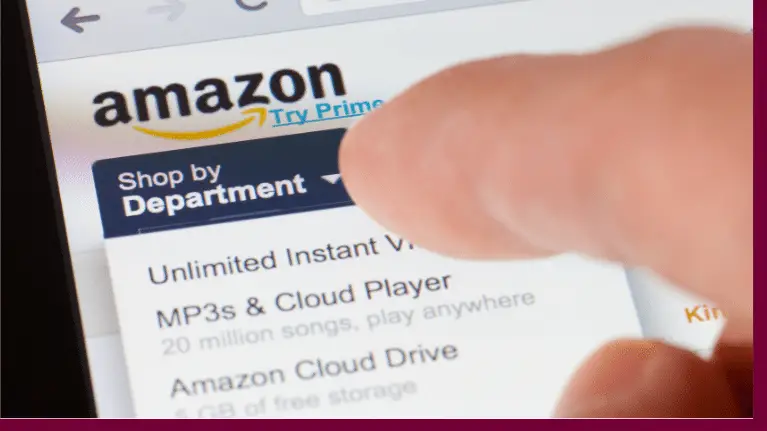A few more days and we're off to a new start. Often, the new year brings new hope and chances. Therefore, 2021 might be the year to get your financial life in order and the beginning of living your best life yet.
But, how exactly will you able to pull that off? You probably heard once about “Living below your means,” some replacing it with propositions such as “within” or “beyond.”
What does it mean? And more importantly, how it can help you get better at your finances this year?
What does it mean to live below (within) your means?

Practically, to live below or within your means emphasizes spending less than you earn.
If you do the math and subtract all your expenses from your take-home pay and you're left with a negative balance, it means you're living beyond your earnings, and that signifies a problem, friend
Or, you could be living paycheck to paycheck and getting broke, always and consistently. Of course, we don't want that. So, living beyond or above your means can badly hurt your financial status.
But before we dig in deeper, if you have prejudices, you might think living below your means can feel too depriving and is full of restrictions. However, it doesn't have to be like that.
In 2020, nearly four million U.S. jobs have vanished forever due to the pandemic. That's why, more than ever, it's crucial you have a financial game plan and get prepared for whatever life throws at you.
Related reads: How To Stop Living From Paycheck to Paycheck
Why is it important to live below your means?
Aside from the financial freedom and independence it entails, there are countless benefits to learning how to live below your means.
Well, first of all, living below your means is also buying things you can only pay for in full. That means no credit card debt and no loans. Your path to a debt-free life is within sight!
It also means less stress and anxiety for your mental health. Because you give every dollar a job and take control of every cash coming in and going out, you won't lay awake at night wondering where your money went this month.
Moreover, it makes you a disciplined and more responsible individual. Now that you make every purchase with intention, you feel confident and secured about your overall financial health.
Another benefit living below your means can bring into your life is the ability to build wealth. Keep in mind that the money you spend is wealth given away to someone else. By living below your means, you have extra money to invest and grow more money.
These are some of the advantages of living an inexpensive life, and there's more to that. A healthier financial life, financial security, and freedom; all it gives is nothing but good.
Related reads: The 30-Day Savings Rule
How do you spend less than you earn?
So, living below your means, or simply an inexpensive life, is easier said than done. But, with the new year coming along, this may be your chance to start and make it right. Follow these tips to frugal living and try to include them in your life.
It will not turn your life around overnight, but these are all effective ways for you to save more money this year.
Read more: Questions About Saving Money? Here are all the Answers You Need
1. Create a spending plan.
A Financial Plan, Game Plan, or simply, Budget, whatever you want to call it. Creating a budget is the foundation of your path to many financial benefits, financial freedom, independence, and security, to name a few.
Now, you must shift your perspective towards budgeting. It's not meant to restricts you to the point where you feel like you can never spend your money how you want. Instead, it gives you a clear view of where each dollar goes.
There are several budgeting methods you can use such as:
- Zero-based budgeting
- 50/30/20 rule
- Cash Envelope System
- Value-based budgeting
These are all efficient and proven effective ways for whoever want to get hands-on with their money.
A recent poll by Mint shows that 65% of Americans are living without a budget. Do you want to belong to that large percentage of people? Hence, it is also essential that you understand how and where your money goes.
You can start creating a budget or a financial plan now. If you're with a family, you can build a household budget and team up with your partner to work things out. Whether you're new to budgeting and all that stuff, it's not that difficult to have one.
Related reads: How to Budget and Save Money to Transform your Finances
2. Cut meaningless expenses.
If you desire to live below your means, you should cut back spending in some of these categories. And, as you track your purchases, ask yourself. “Do I really need this?”
Getting clear with it might help you better understand your priorities and what you really want to spend your money on.
By spending less than you make, you would be able to get out of debt, pay off loans, and save up for little emergencies or big purchases. Depending on your current life situation, here are some areas you can curb your meaningless spending.
- Memberships: are you looking for a sign? Well, yes, here it is! Cancel your expensive gym memberships and cable subscriptions that you never use anyway. Opt for cheaper ones.
- Foods: Eating out? Try some nice home-cooked meals and inexpensive dinner dates. You may get surprised as to how much you can save by just making your own dish.
- Cars: Why buy a brand new one when you can opt for a used car and still get from point A to B? Besides, not to mention the costs associated with maintenance and gas. You can also try to rent or lease a car for one-time travel or share rides by carpooling. Depending on which city you live in, public transport and commute might be a better choice.
- Clothes: You can spend less on clothes by shopping at second-hand stores or thrift stores. You can also sell off your pre-loved clothes online and earn money off of them. If you're serious about living a life of less, check the minimalist philosophy or lifestyle. Well, I'm not an expert myself but, a minimalist approach to possessions and belongings sure does save a bit of money.
Read more: 32 Realistic Ways to Save Money Very Easily.
3. Don't use credit cards. Use CASH instead.
Whenever you're outside, try to leave all your credit cards behind and use only cash. That way, you won't be tempted to spend more money that locks you in an expensive purchase and debt chain cycle eventually.
The infamous phrase “charged it” should be erased from your vocabulary.
When you use cash, you get to see how much money is precisely left in your pocket, so you'll tend to limit your purchases and do yourself a favor of saving more money.
4. Automate your savings.
Automation is the future. It should also be the future of your savings.
The explosion in fintech (financial technology – think finance and banking apps) means that now more than ever, the tools to take control of your finances are at your fingertips.
Furthermore, an automated savings plan is a great way to make sure that you are stocking away money without giving it a second thought. It can be tough to set aside money consciously, even when times are good, so be sure to bypass your judgment and set your savings on autopilot.
Indeed, saving should be second nature to you. Pay yourself first.
Make use of many financial tools to automate your savings and save more money in the long run.
5. Boost your income and get a second or even a third job.
The pandemic may have impacted your job, but this 2021, you can have a clean slate to pursue your dream job. In living below your means, if your job is your main stream of income, first off, you can ask for a raise at your current job to boost it.
In addition, according to the US Census Bureau, about 13 million U.S. workers have more than one job.
Further, you can also get a second job. Either part-time or full-time, as long as you can manage a proper work-life balance.
Nowadays, freelancing and economy gigs are booming more than ever, allowing you to work from the comfort of your own home while earning almost or even a higher amount of money.
6. Avoid unnecessary fees or negotiate.
By unnecessary fees, I mean late fees, bank fees, bill-paying fees, ATM fees, to name a few.
Mobile or online banking is undoubtedly convenient, but if you get hit with hidden charges, they might eat up your funds. So, avoid these at all costs, or better yet, you can try to negotiate if you have the time.
Negotiate with your landlord about rental fees and with your bank with regards to your bank charges.
7. Use The 50/50 Rule.
I recently learned and applied this rule to my finances. Well, the 50/50 rule is one way of managing your money, or more accurately, allocating it.
It is more applicable when you receive windfall money, i.e., money from bonuses or gift money. You allocate 50% or half of the amount to any savings or funds you want.
While the other half is what you spend for whatever you want to. Sounds fair, yes?
Just like the 50/30/20 rule, this rule may be or may be not applied to every budget since we're all different in terms of income pay and financial status.
Does it make sense? Instead of getting clueless about how you will spend unexpected money and go on a shopping spree or spend it lavishly, try to always think of how the 50/50 rule works.
Take the half and save it. Don't spend today. Save for tomorrow!
8. Rent To Own.
If you're someone expecting more stable financial terms this year or the following years, you may consider rent-to-own programs. Rent-to-own contracts are an alternative to traditional home loans.
Both buyers and sellers can benefit from these arrangements, however, everyone must understand the risks.
So, how does it work? The contract gives the renter exclusive rights to purchase the home at a specified point in the future. A portion of the money is paid upfront, and part of the established monthly rent also goes toward the purchase price.
Depending on the agreement and your situation, in the long run, owning a house may be more practical than renting. But, as I said, it still depends on your current life situation.
Think about the cost and maintenance of the house as well.
If you're a single individual with no dependents and have a stable income source, renting might be more suitable for you, especially if you travel a lot.
But, if you're a family household, you're indeed working towards owning your home sometime in the future.
Related reads:
How to Start Saving for a House Hassle-Free
Rent and Save: How to Save Money While Renting
Final Thoughts
You see, living below your means can be easily done without feeling deprived.
Hopefully, you find these eight tips useful so you can keep your personal finances in solid shape and live below your means effortlessly.
Remember to be patient with yourself first and don't get discouraged because if you want radical changes in your personal finance life, it won't happen overnight.
It takes a clear vision of what you want to achieve, a set of effective systems to implement on yourself, and willpower to keep going.
This is the sign you've been looking for. Living below your means can be fun too! Try to spread the good news with your loved ones and declare to own your finances this new year. I'm sure they will support you.
Say no to retail therapy and yes to living below your means!
How about you? What are you looking forward to this 2021? Besides saving more money and looking for ways to grow it, share with us below your financial visions and goals this 2021. We love to hear from you!










0 Comments